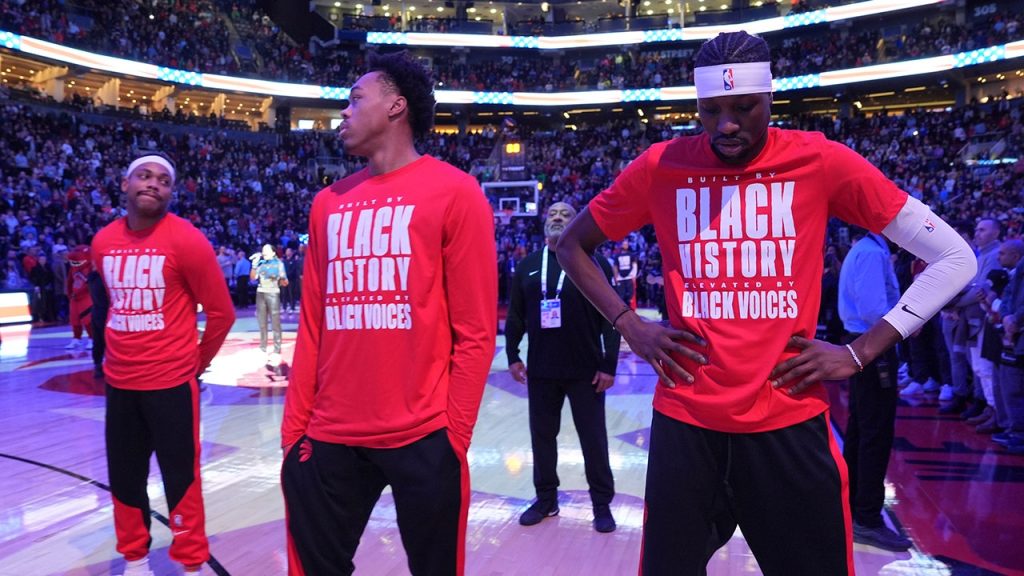The recent booing of “The Star-Spangled Banner” at a Toronto Raptors game against the Los Angeles Clippers highlights a recurring trend of anti-American sentiment expressed by Canadian sports fans. This latest incident, where a 15-year-old girl performing the anthem was met with a mixture of boos and cheers before the game, follows similar displays during NHL games between the Ottawa Senators and the Calgary Flames. While the young singer ultimately received applause for her rendition of “O Canada,” the initial reaction to the American anthem underscores the complex relationship between the two neighboring nations. These displays of dissent seem to coincide with periods of heightened political tension, suggesting a spillover of broader socio-political anxieties into the sporting arena.
The timing of these booing incidents aligns with former President Donald Trump’s implementation of tariffs on Canadian imports, a move that sparked considerable controversy and strained relations between the two countries. Trump’s tariffs, targeting a range of goods including energy resources, were justified by his administration as a response to an “extraordinary threat” posed by illegal immigration and drug trafficking, particularly fentanyl. This rationale, however, was disputed by Canadian Prime Minister Justin Trudeau, who asserted that Canada contributed minimally to the fentanyl crisis and illegal border crossings in the United States. The conflicting narratives surrounding the tariffs further exacerbated the existing tensions and likely fueled the anti-American sentiment expressed by some Canadian fans.
Trump’s imposition of tariffs was perceived by many Canadians as an aggressive and unfair economic measure targeting a close ally. The tariffs, implemented under the International Emergency Economic Powers Act, were presented by the Trump administration as a necessary measure to hold Canada, Mexico, and China accountable for their alleged failures to curb illegal immigration and drug flow into the U.S. The White House fact sheet emphasized the “extraordinary threat” posed by these issues, justifying the tariffs as a response to a national emergency. This framing, however, contrasts sharply with the Canadian perspective, which viewed the tariffs as an unwarranted attack on their economy and a misrepresentation of Canada’s role in the issues cited by the Trump administration.
The juxtaposition of the booing incidents with the tariff dispute highlights the interconnectedness of sports and politics, particularly in the international arena. Sporting events, often seen as symbols of national pride and identity, can become platforms for expressing broader political sentiments. The booing of the American anthem in Canada can be interpreted as a manifestation of the frustration and resentment felt by some Canadians towards the Trump administration’s policies, specifically the imposition of tariffs. The sporting arena provides a visible and audible outlet for expressing these feelings, albeit in a manner that can be seen as disrespectful to the anthem and the country it represents.
Adding to the complexity of the situation was Trump’s prior statement expressing his desire for Canada to become the “51st state” of the United States. This comment, made before Trudeau’s resignation, further fueled the resentment among some Canadians who viewed it as dismissive of Canadian sovereignty and national identity. While the remark might have been intended as a playful suggestion, it was received by many as an insensitive and unwelcome proposition, further contributing to the negative perception of the Trump administration in Canada. This backdrop of political tension, coupled with the economic impact of the tariffs, likely created a charged atmosphere where expressions of anti-American sentiment, such as the booing of the national anthem, found fertile ground.
The booing incidents underscore the delicate balance between expressing political dissent and respecting national symbols. While the act of booing a national anthem can be seen as a legitimate form of protest against a country’s policies, it can also be interpreted as disrespectful to the anthem itself and the values it represents. The incidents in Canada highlight the complex interplay of national pride, political dissent, and the symbolic power of sporting events. While the booing might have been directed at the policies of the Trump administration, it also impacted the young singer performing the anthem, raising questions about the appropriate venue and target for expressing political views. The incidents serve as a reminder of the potent intersection of sports and politics, and the potential for national anthems to become lightning rods for expressing broader socio-political tensions.

